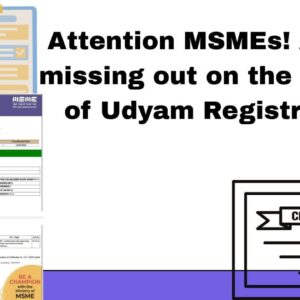Small business owners in the UK often face a critical decision when it comes to financial reporting: whether to adopt FRS 105 or adhere to the Full UK GAAP. While both frameworks provide guidelines for financial statements, they differ significantly in complexity, compliance requirements, and administrative effort. Understanding these differences is essential for micro-entities seeking efficient reporting without compromising regulatory compliance. In this article, we explore the administrative burdens of each approach, helping businesses make informed choices.
Understanding FRS 105
FRS 105 is a simplified reporting standard designed specifically for micro-entities in the UK. A micro-entity is generally defined as a business meeting at least two of the following criteria:
- Annual turnover of £632,000 or less
- Balance sheet total of £316,000 or less
- 10 or fewer employees
FRS 105 focuses on streamlining financial reporting, reducing administrative complexity, and making compliance more manageable for small business owners. By minimizing disclosure requirements, it allows micro-entities to prepare annual accounts efficiently, saving time and reducing costs.
Key Features of FRS 105
- Simplified balance sheet and profit & loss requirements
- Minimal disclosure in notes to the financial statements
- Straightforward accounting policies tailored for micro-entities
- Exemption from preparing a cash flow statement
This simplicity is especially attractive to business owners who want to focus on operations rather than complex accounting processes.
Understanding Full UK GAAP
On the other hand, Full UK GAAP (Generally Accepted Accounting Practice) is a more comprehensive framework applicable to all businesses, including larger small enterprises. Full UK GAAP requires adherence to detailed accounting standards, including FRS 102, which applies to small and medium-sized entities (SMEs).
Key Features of Full UK GAAP
- Detailed financial statements, including full notes and disclosures
- Mandatory preparation of a cash flow statement (for applicable entities)
- More complex recognition, measurement, and disclosure rules
- Higher administrative burden due to rigorous reporting standards
While Full UK GAAP provides a thorough picture of a company’s financial health, it can be resource-intensive for micro-entities with limited staff or accounting expertise.
Comparing Administrative Burdens
When comparing FRS 105 with Full UK GAAP, the difference in administrative workload is substantial.
Time Investment
Under Full UK GAAP, preparing accounts typically requires more time due to detailed notes, reconciliations, and cash flow reporting. Micro-entities often need external accountants to ensure compliance, adding both cost and complexity.
In contrast, FRS 105 simplifies these processes. With fewer disclosures and simpler formats, business owners can manage accounting internally or with minimal external support. This can result in significant time savings, freeing resources for core business operations.
Cost Considerations
Administrative costs under Full UK GAAP are higher, not only because of the time spent but also due to the need for expert accounting services. Compliance with complex standards can involve consultancy fees, training, and potentially software upgrades.
FRS 105 reduces these costs by focusing on essentials, allowing micro-entities to prepare accounts efficiently and cost-effectively. Outsourcing FRS 105 compliance can further optimize expenses while ensuring regulatory adherence.
Compliance Risks
With Full UK GAAP, errors or omissions in complex financial statements can expose businesses to regulatory scrutiny or penalties. Micro-entities often face challenges in keeping up with frequent updates to accounting standards.
FRS 105 minimizes compliance risks by providing clear, concise rules tailored to micro-entities. The simplicity reduces the likelihood of errors and ensures smoother interactions with regulatory authorities.
Sector-Specific Considerations
Some sectors, such as construction or professional services, may have additional reporting requirements or stakeholder expectations. In these cases, Full UK GAAP may be preferred for transparency, particularly when dealing with lenders or investors. However, many micro-entities in these sectors successfully adopt FRS 105, benefiting from streamlined reporting without sacrificing credibility.
Practical Benefits of FRS 105
Focus on Core Business
By reducing administrative burdens, FRS 105 allows business owners to concentrate on growth and strategic initiatives rather than time-consuming accounting tasks.
Simplified Accounting Processes
Accounting under FRS 105 is straightforward, with easy-to-follow guidelines for revenue recognition, fixed assets, and liabilities. This simplicity is particularly valuable for micro-entities with limited financial expertise.
Cost Savings
The reduction in accounting time and need for professional services translates into tangible cost savings. These resources can be reinvested into business operations, staff development, or technology enhancements.
Regulatory Compliance
Despite its simplicity, FRS 105 remains fully compliant with UK financial reporting regulations for micro-entities. This ensures that businesses meet legal obligations while avoiding unnecessary administrative burdens.
Making the Right Choice
The decision between FRS 105 and Full UK GAAP ultimately depends on the size of the business, available resources, and stakeholder expectations.
- Choose FRS 105 if you are a micro-entity seeking simplified, cost-effective reporting with minimal administrative hassle.
- Choose Full UK GAAP if your business is growing, has complex financial transactions, or requires detailed reporting for investors or lenders.
Businesses considering FRS 105 can also explore Insights UK FRS 105 services to guide implementation, ensure compliance, and optimize reporting processes. These services provide expert advice tailored to micro-entities, helping them leverage the full benefits of simplified accounting while avoiding pitfalls.
Leveraging Professional Support
Even with FRS 105, professional support can enhance efficiency. Advisory firms specializing in Insights UK FRS 105 services can:
- Ensure proper adoption of FRS 105 accounting policies
- Review financial statements for accuracy
- Provide guidance on disclosure requirements
- Offer ongoing support for regulatory updates
By partnering with such services, micro-entities gain peace of mind, knowing that their reporting is accurate and compliant.
For UK micro-entities, the choice between FRS 105 and Full UK GAAP has significant implications for administrative workload, costs, and compliance. FRS 105 offers a streamlined, cost-effective alternative that minimizes complexity, reduces errors, and frees resources for strategic business activities.
While Full UK GAAP provides a comprehensive framework suitable for larger or more complex businesses, the simplicity and practicality of FRS 105 make it a preferred option for many micro-entities. By leveraging Insights UK FRS 105 services, business owners can implement this framework efficiently, ensuring compliance while focusing on growth and operational excellence.
Understanding the differences and administrative implications of these frameworks enables micro-entities to make informed choices, balancing compliance, efficiency, and strategic priorities. FRS 105 is more than just a regulatory requirement—it’s a tool to streamline accounting, reduce burden, and support sustainable business growth.




